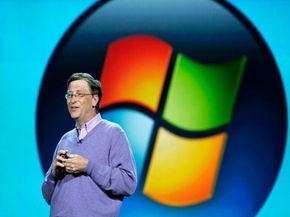There's an iconic image of Bill Gates that might help explain our collective fascination with this legendary businessman and his most famous creation, the Microsoft Corp. It's a mug shot from 1977, taken after Gates was pulled over in Albuquerque, N.M., for a traffic violation [source: The Smoking Gun].
The photo shows a chinless 19-year-old geek with tinted prescription glasses and an undeniable smirk. How, we're left to wonder, did this goofy-looking college dropout with questionable driving skills (and wearing an even more questionable flowered shirt) end up becoming the richest man in the world?
Advertisement
If you go searching for answers to that question online, you'll find a lot of half-truths and misinformation. It doesn't help that Microsoft has made more than its fair share of enemies over the years. It really doesn't help that most of those enemies have blogs that enable them to share their enmity with the world. They've accused the company and its former CEO of everything from willfully running a monopoly to stealing some of its biggest technological innovations to actually being evil.
The myths surrounding Microsoft and its founder are closely tied to the creation myth of the personal computer itself. To start off our list of top 5 Microsoft myths, we're going to explore a common misconception about the origin of "windows."


